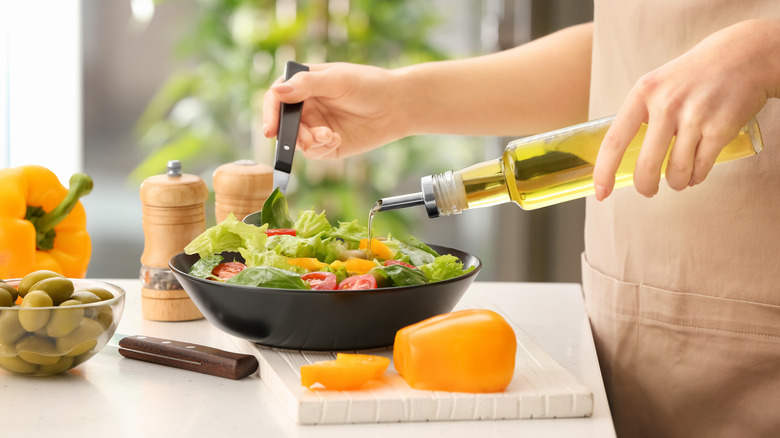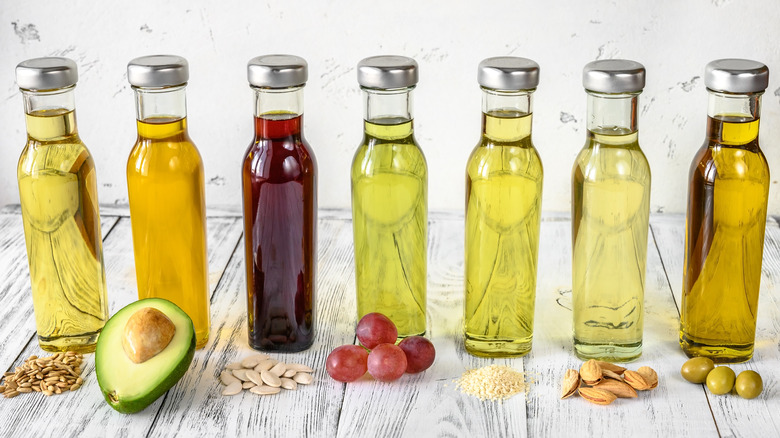Is It Healthier To Cook Without Oil?
Oil is a common ingredient in many recipes, whether it's used to marinate chicken, pan-fry fish, or roast vegetables. Recipes that do not require oil are rising in popularity, but are these really healthier? The answer to this depends on how much oil you're consuming and what kind of oil it is.
"You need a small amount of fat in your diet for healthy functioning," says the Heart and Stroke Foundation of Canada. "Oils and fats supply calories and essential fats and help your body absorb fat-soluble vitamins such as A, D, E and K." The foundation notes, however, that the type of fat you eat is also important. You should opt for unsaturated fats and avoid saturated and trans fats, as these can raise "bad" LDL cholesterol and lower "good" HDL cholesterol. This can put you at a higher risk of developing high blood pressure and suffering from a heart attack or stroke.
Monounsaturated fats can improve HDL cholesterol levels. These fats are found in olive oil, canola oil, peanut oil, and avocado oil. Polyunsaturated fats, including omega-3 fatty acids, can lower LDL cholesterol levels. These can be found in canola oil and soybean oil.
Stick to small amounts of healthier oils
Nutritionists agree that there isn't a black-and-white answer to whether or not it's healthier to cook without oil. Everyone should aim for a balanced diet of fruits, vegetables, whole grains, and fats, but how those nutrients are accessed will look different across the board. According to Self, "blanket-labeling foods "healthy" or "unhealthy" is always a little tricky. Nutrition is a complex science, healthy choices look different for everyone, and all foods can have their place in a diverse and balanced diet."
Cara Harbstreet, M.S., R.D., L.D., of Street Smart Nutrition, told Self that nutrition needs to be approached from a wide lens and include factors like price when determining how someone should eat a healthy diet. For example, "canola and vegetable oil, while not necessarily the standouts in the nutrition category, are widely available and relatively affordable compared to the other oils," Harbstreet said. Oils that tend to be labeled the "healthiest," like olive oil and avocado oil, can be expensive.
The bottom line is that cooking with oil is not a bad thing, as long as your overall diet is well-balanced.


